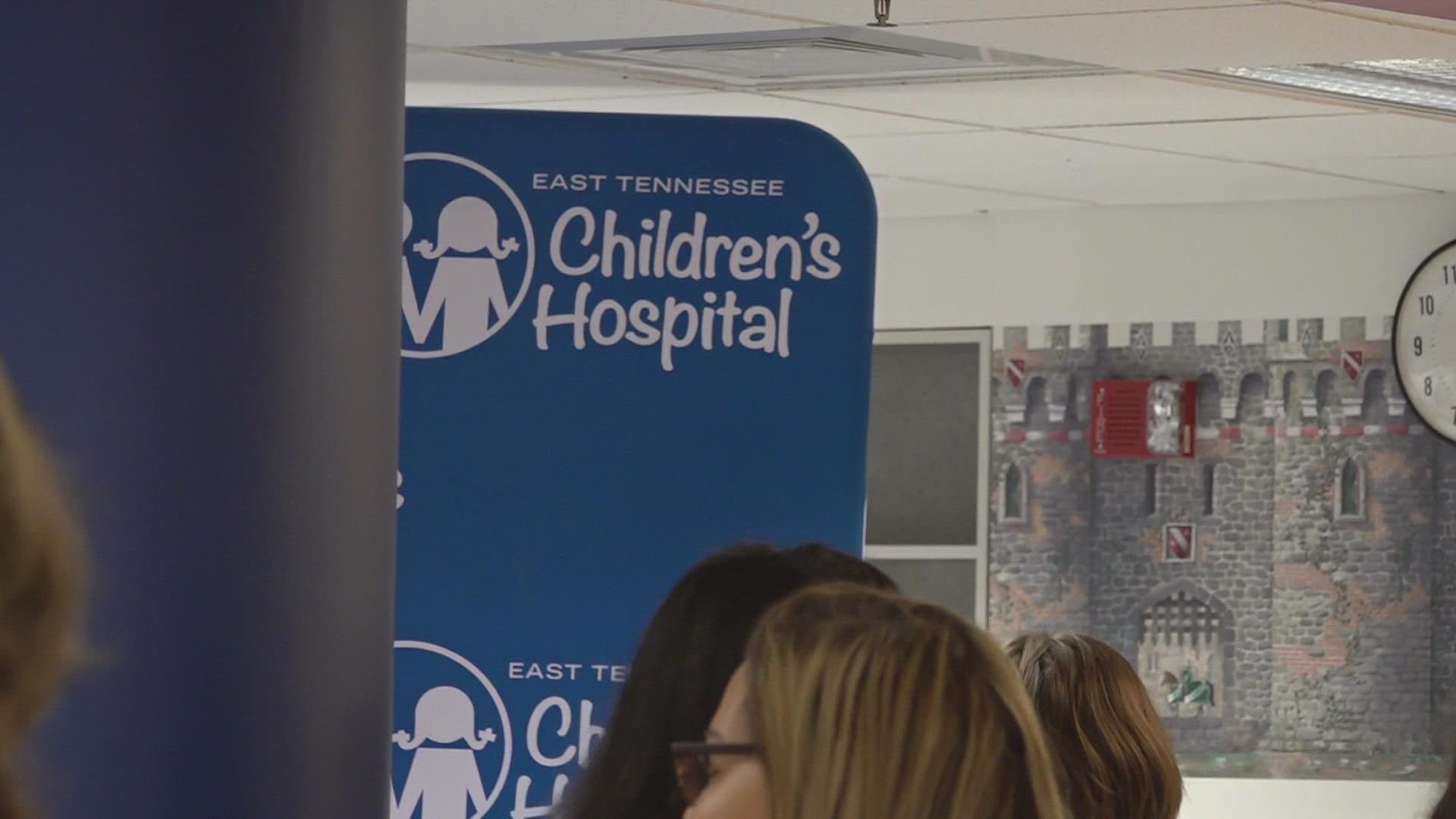KNOXVILLE, Tenn. — The CEO of East Tennessee Children's Hospital, Matthew Shaeffer, said children's hospitals across Tennessee have seen around a 60% increase in children seeking mental healthcare during moments of crisis.
He said in response to that rise in children seeking mental healthcare, ETCH created the McNabb Crisis Stabilization Unit. Before they developed the unit, kids would need to wait in an emergency room for help in an environment filled with stressors.
"Rather than them sitting there in an emergency setting, where we're focused on medical and surgical needs, how do we transition them into a therapeutic environment?" he said.
He also said that last year, more than 1,600 kids had to wait in the emergency room while seeking mental health care.
The new unit is meant to help these kids quickly go through an intake assessment and be placed in a therapeutic environment. There, they can go through cognitive-behavioral therapy and resolve the crisis. Then, they can be connected with an organization for ongoing care in an outpatient program.
Cognitive-behavioral therapy is a common form of psychological treatment that focuses on changing the ways people understand stimuli and alters their thinking patterns. At its core, this kind of therapy seeks to change the way a person's thoughts impact feelings, and vice versa.
It is mostly done through a variety of techniques designed to give people the emotional tools they need to better regulate emotions. This can include keeping a journal of a person's emotions, challenging a patient's viewpoints, exposure therapy or relaxation exercises.
Shaeffer also said parents should stay aware of some common warning signs that their children may need help. Some of them include obvious signs, like a sudden change in behavior or a sudden increase in aggression or violence. There could also be sudden, unexpected changes in a child's diet.
"There are more subtle signs, things where I withdraw from the people I really love, like my family or my friend group," he said. "Or from the things that I used to love, whether that's school or sporting events or religious activities — suddenly that's not so interesting to me."
To help them, he said parents should stay engaged with their children. Most of the time, he said children feel isolated and the best way to address mental health issues is usually to remind them they're not alone. This can be done by simply asking questions about anything from their day to their emotions.
"Number one job of a parent — be an advocate for your child, your most prized possession," Shaeffer said. "I think one of the great things we've done as a society over the past couple of years is normalized the conversation around mental health. We need to place that conversation at the same level we placed physical health conversations. You can't be physically healthy unless you're mentally and emotionally healthy."

